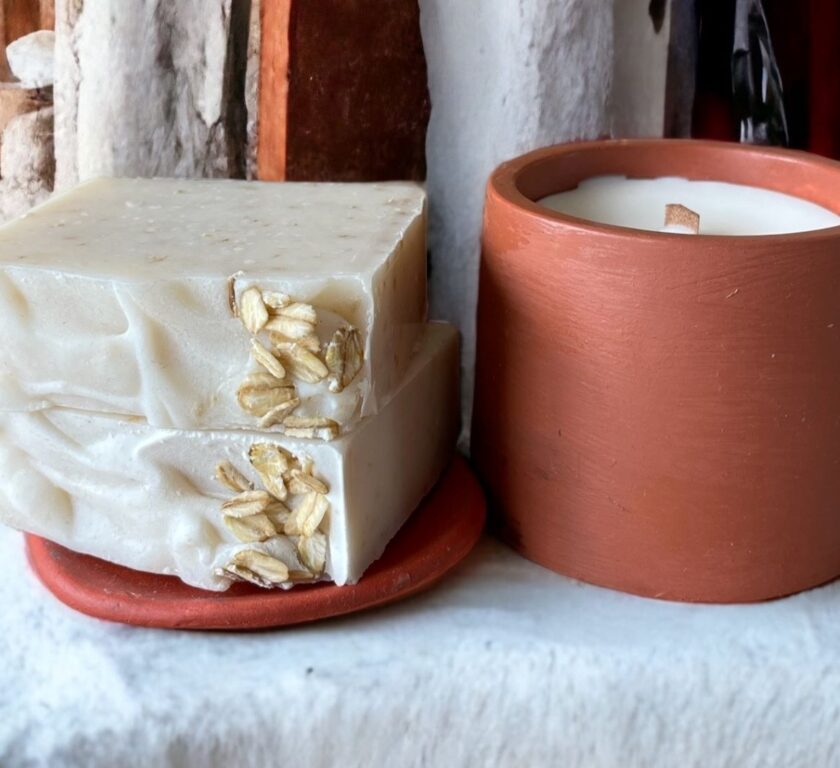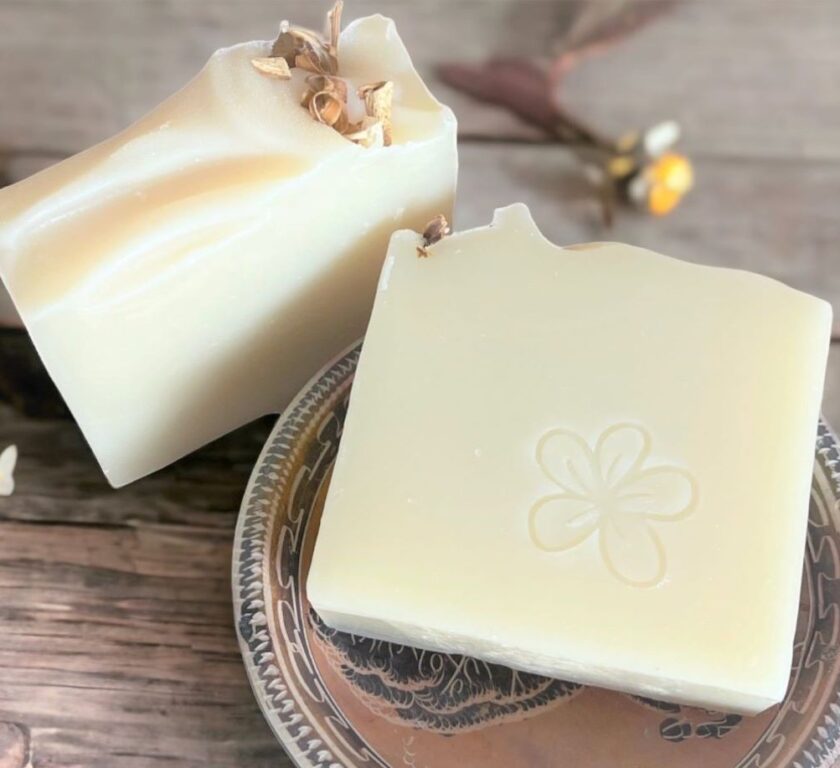What is an Essential Oil?
Essential oils are key elements in soap making. It can be used to add fragrance naturally and to add their healing properties to your soap. Each essential has its own benefits for body and mind.
The term essential oil is short for quintessential oil. Quintessence is thought to be the fifth element. We are already familiar with the other four: earth, air, fire, and water. All matter is comprised of these elements. Quintessence, also referred to as ‘spirit’ is the life essence of the plant in its extracted form.
Essential oils are highly concentrated plant essences and in soap making, just a couple of grams can be added to soap batter to create a specific fragrance.
How do we extract essential oils from plants?
Essential oils can be extracted from plants through distillation, which requires heating and cooling selectively to separate the oil from the other plant components. The leaves, roots, flowers, and bark of various plants are commonly distilled to create the residual oil.
In some cases, vast amounts of plant matter are required for the creation of just a tiny amount of oil; in the distillation of rose oil, for example, a ton of petals is required to create a pound of oil.
Fragrance oils are often confused with essential oils. They are not the same. Fragrance oils are artificially created rather than derived from a plant. They can add scent to soaps but without providing the same therapeutic properties associated with essential oils, although they may also be derived from natural sources.
Why do we use essential oils in our soaps?
As well as adding scent to natural soap, essential oils are used in soap making for their reputed health benefits – especially for the skin. Different oils are associated with different benefits.
Some oils have antibacterial or antimicrobial properties, while others are reported to help relieve pain and inflammation. Some soothe the senses, other are mood-lifting.
Essential oils are natural products and fragrance oil is synthetic. However, this doesn’t mean that natural handmade soaps should be avoided if they contain fragrance oil. If the oil is natural and constitutes less than one per cent of the soap’s ingredients, it should not be detrimental. We use for example, pure essential oils in most of our soaps and some soaps have a combination for essential oil and 100% natural fragrance oil.
Combining essential oils and fragrances oils
At SoapArt, we understand the importance of balancing scents. We have single-scented soaps as well as combined fragrances. In some cases, we use both essential aromatherapy oils and fragrance oils to create the perfect balance.
Both essential and fragrance oils are categorized into top notes, middle notes, and base notes, depending on how long-lasting each scent is. Blends often include one from each category for a well-rounded fragrance.
Top note essential oils include sweet orange, lime, and citronella. These fragrances are strong but disappear quickly.
Middle note essential oils include rose, jasmine and neroli. These fragrances are not as strong, but they are longer lasting, forming the main element of any fragrance blend.
Base note essential oils include ylang-ylang, sandalwood, and vanilla. These are heavy and rich, lasting the longest.
At SoapArt, we use the cold process soapmaking method, which means the fragrance or essential oils are added last; this helps the soap retain its scent. We also cure our soaps for at least six weeks, which intensifies the fragrance and produces a better-quality bar.
Essential oil benefits
Using our natural handmade soap, means that you are using essential oils on your skin every day. Our soaps include lavender, sandalwood, jasmine, chamomile, bergamot and rose essential oil in different combinations and proportions.
Here’s a list of 10 popular essential oils and the health claims associated with them:
Peppermint: used to boost energy and aid digestion
Lavender: used to relieve stress
Sandalwood: used to calm nerves and help with focus
Bergamot: used to reduce stress and improve skin conditions like eczema
Rose: used to improve mood and reduce anxiety
Chamomile: used to improve mood and relaxation
Ylang-Ylang: used to treat headaches, nausea, and skin conditions
Tea Tree: used to fight infections and boost immunity
Jasmine: used to help with depression, childbirth, and libido
Lemon: used to aid digestion, mood, headaches, and more
Credits: SoapClub, Healthline, NowFoods


